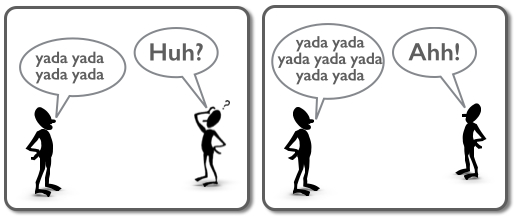
, you probably don’t need a translation for “Huh?” It appears that the word, , .
, . to be . , . They , including Spanish, Chinese, Icelandic and from Australia, South America and Africa . They that , or .
, they . These are called . But were . The word “huh” in these languages . “huh” is a very different kind of word.
or . . Convergent evolution is when .
How do you say “huh” in your ? in our Facebook comments section.

| English | 日本語 |
|---|---|
| Researchers Discover a Universal Word | 研究者がすべてに共通する言葉を発見した |
| Researchers have discovered | 研究者が〜を発見した |
| an almost universal word | ほとんどすべての言語に共通する言葉 |
| Even if you are not a native speaker of English | たとえあなたが英語のネイティブでなくても |
| or a very similar form of it | またはとてもそれに似たような |
| is used in most of the languages in the world | 世界のほとんどの言語に用いられる |
| Until now | 現在まで |
| there was very little written about ‘huh’ in linguistic literature | 言語学文献で「huh」についてあまり書かれていなかった |
| it was thought | 〜と考えられていた |
| an unimportant feature of language | 言語の重要でない特徴 |
| Thinking there was perhaps more to it | それ以上の意味があるかもしれないと思って |
| some researchers at the Max Planck Institute for Psycholinguistics in the Netherlands | オランダにあるマックス・プランク心理言語学研究所の研究者 |
| decided to look into the matter | その件について詳しく調べることにした |
| began analyzing recordings of ten different languages | 10カ国語のレコーディングを分析し始めた |
| indigenous languages | 現地語 |
| to see whether these other languages had a similar word with the same function | その他の言語に同じ機能の似ているような言葉があるかどうかを調べるために |
| discovered | 発見した |
| in every one of the languages | すべての言語に |
| speakers | 話し手 |
| would use roughly the same sound to ask for a clarification | 明確に説明してほしいと要求する時にほぼ同じ音を用いる |
| when they wanted their counterpart to repeat something | 話し相手に何かを繰り返してほしいとき |
| Generally | 一般的に |
| when words are similar in different languages | 異なる言語で言葉が似ているとき |
| share the same origin | 語源が一緒である |
| cognates | 〔他言語の〕同語源語 《言語学》 |
| most of the languages in the study | 研究の対象となった言語のほとんどは |
| completely unrelated to the others | 他の(言語)とは全く無関係である |
| could not have been a cognate | 同語源語ということはあり得なかった |
| This meant that | ということは |
| The scientists suspect that | 〜ではないかと見ている |
| the same sound is used | 同じ音が用いられる |
| because it is the most efficient way to ask for someone to explain something further | それは相手に何かをもっと詳しく説明してもらうのに一番効率のよい方法だ |
| to clarify their statement | 明確に発言するように |
| They compare it to convergent evolution | 収束進化になぞらえる |
| similar environments cause the evolution of similar features in unrelated species | よく似た環境では違う種においても同じような特徴が発達する |
| native language | 母国語 |
| Feel free to let me know | どうぞ遠慮なく教えてください |
Hear “Huh?” in the 10 different languages from the study.
研究者が~を発見した
ほとんどすべての言語に共通する言葉
たとえあなたが英語のネイティブでなくても
またはとてもそれに似たような
世界のほとんどの言語に用いられる
現在まで
言語学文献で「huh」についてあまり書かれていなかった
~と考えられていた
言語の重要でない特徴
それ以上の意味があるかもしれないと思って
オランダにあるマックス・プランク心理言語学研究所の研究者
その件について詳しく調べることにした
10カ国語のレコーディングを分析し始めた
現地語
その他の言語に同じ機能の似ているような言葉があるかどうかを調べるために
発見した
すべての言語に
話し手
明確に説明してほしいと要求する時にほぼ同じ音を用いる
話し相手に何かを繰り返してほしいとき
一般的に
異なる言語で言葉が似ているとき
語源が一緒である
〔他言語の〕同語源語 《言語学》
研究の対象となった言語のほとんどは
他の(言語)とは全く無関係である
同語源語ということはあり得なかった
ということは
~ではないかと見ている
同じ音が用いられる
それは相手に何かをもっと詳しく説明してもらうのに一番効率のよい方法だ
明確に発言するように
収束進化になぞらえる
よく似た環境では違う種においても同じような特徴が発達する
母国語
どうぞ遠慮なく教えてください
